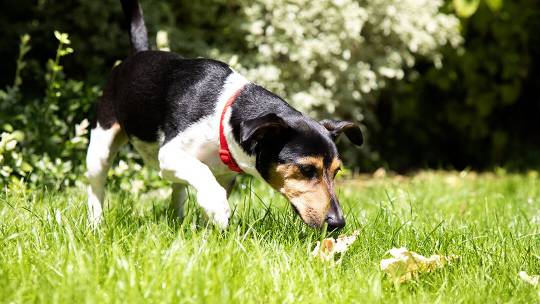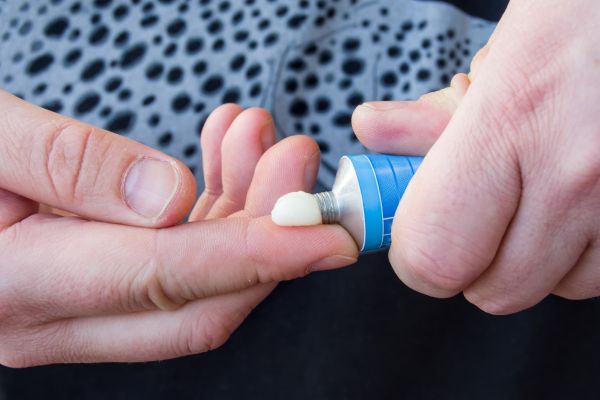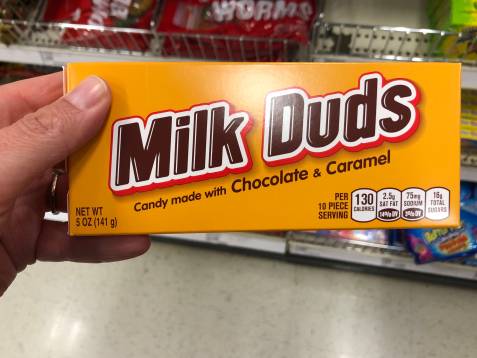Dogs love to bite, chew, and have fun with just about anything including the mulch in your yard. Not only that, but many dogs also enjoy digging in mulch! What fun stuff mulch can be to a dog!
Connect with a verified veterinarian in minutes. Licensed vets are available 24/7 to answer your questions. No need to worry about your furry family member.
However, can mulch be dangerous for your dog? What happens if your dog eats mulch?
What is Black Mulch?
Mulch is commonly used in gardens under plants. It helps to keep weeds done and provide more uniformity to the garden or flower bed. Black mulch is made from wood chips that are dyed black. The dye is usually made of carbon black dye, which is not toxic to dogs.
However, any type of mulch can be a huge health issue for any dog that eats it. And there are some types of mulch that are toxic to dogs.
Black Mulch & Dogs
If your dog eats one small bite of black mulch, he will probably be OK. However, it’s always a good idea to keep an eye on your fur baby and watch for any concerning symptoms that may develop afterward. You may also want to check your dog’s mouth for any injuries to his teeth, gums, and the back of his throat. Mulch can be sharp and cause some irritation or small wounds in the mouth, and more.
Black mulch can be made from cocoa beans. This mulch smells like chocolate (made from cocoa beans), which dogs love. However, chocolate is toxic to all dogs. Cocoa bean mulch contains some of the same toxins found in chocolate, including theobromine and caffeine. Both of these substances are highly toxic to dogs.
Symptoms of cocoa bean toxicity can include:
- Excessive thirst and urination
- Vomiting
- Diarrhea
- Panting/restlessness
- Racing heart
- Heart failure
If your dog develops any of these symptoms, it’s best to call the vet right away. The substances found in cocoa bean mulch can be life-threatening, especially if your dog has eaten a lot of black mulch made from cocoa beans.
In addition, any type of mulch may harbor mold. Mold is common in mulch, as the mulch keeps moisture in the soil. That moisture can cause mold to grow on mulch. Mold can be dangerous, as it contains mycotoxins that can make a dog very sick. Common symptoms of mold toxicity include tremors, seizures, and more.
Mold is extremely dangerous for dogs (as well as other pets and humans). There are many different kinds of mold; however, the ones that can cause major health issues include Cladosporium, Fusarium, Penicillium (the mold used to make the antibiotic penicillin), Aspergillus, and Stachybotrys. These molds contain mycotoxins that can cause sneezing, coughing, neurological problems, and death.
Mold ingestion symptoms in dogs can include:
- Sneezing
- Wheezing
- Vomiting
- Diarrhea
- Nasal discharge
- Scratching
- Loss of appetite
- Lethargy
- Nosebleeds
- Tremors
- Coughing
- Difficulty breathing
If you notice any of these symptoms in your fur baby, it’s best to call the vet right away. Mold ingestion can be life-threatening to our canine friends.
If your dog happens to eat a large amount of black mulch, then this could also result in an intestinal blockage. This condition is a medical emergency.
When a dog develops an intestinal blockage, it means the mulch (or other material) he’s eaten has become lodged in his intestines. Nothing can move the blockage, which means water and food can’t go down, and your poor pup may not be able to poop, either. This is a very serious medical emergency.

Review symptoms, medications & behavior to keep your pets healthy with a Vet Online in just minutes.
Ask a Vet Live NowSymptoms of an Intestinal Obstruction in Dogs
You may notice these symptoms if your dog has eaten a large amount of mulch:
- Vomiting
- Diarrhea
- Constipation
- Abdominal pain and swelling
- Weakness
- Loss of appetite
If you know or suspect that your dog has eaten mulch of any kind and is showing any of these symptoms, then it’s time to call the vet. This is a life-threatening medical emergency. Your dog needs treatment now.
If your dog likes to chew on or eat mulch, then you may want to consider pet-safe mulch in your yard. Better yet, remove all mulch for the area where your dog goes outside. This would be much safer for him!
Connect with a verified veterinarian in minutes. Licensed vets are available 24/7 to answer your questions. No need to worry about your furry family member.

Tom
Tom has always loved to write since he was little - he wanted to be either a writer or a veterinary doctor, but he ended up being a professional writer while most of his works are based on animals. He was born in San Francisco but later moved to Texas to continue his job as a writer. He graduated from the University of San Francisco where he studied biotechnology. He is happily married and a soon to be father!
Review symptoms, medications & behavior to keep your pets healthy with a Vet Online in just minutes.
Ask a Vet Live Now




